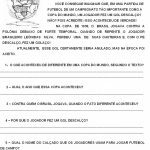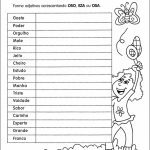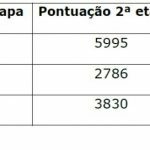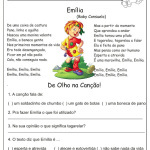Text interpretation is essential in the training of students. With this in mind, we selected some activity tips on explanatory text. Teachers can apply in the classroom or as homework. Enjoy!



Why do we sweat cold when we are afraid?
Find out where your body's unexpected reaction to risky situations comes from
You are taking a walk through the forest and suddenly a hungry bear comes out of the cave running towards you. Your heart almost jumps out of your mouth and the hairs on your arms all stand on end. Your legs feel like they get a little engine and you run like an athlete. At the same time, an icy wave runs through your body and you sweat cold. All of this was triggered by fear, which caught you in fright!
Okay, you might not run into a bear in the woods, but a ferocious dog on a deserted street maybe, isn't it? Cold sweat is just one of our body's many reactions to a situation of stress or threat.
As a result of fear, our bodies undergo a revolution. In short, the brain signals the heart that it's time to speed up, pumping more blood – ah! and with a lot of adrenaline (a substance that prepares the body for great efforts) – for the muscles, so that they work better. Meanwhile, due to the excess of blood directed to the muscles, the organs of the abdomen and the skin start to receive less blood, and that's the reason why we feel the feeling of butterflies in the stomach, the skin is cold with sweat and starts to shiver - brrrr!
This sudden change in body functioning prepares us to flee or fight, just as cavemen did. At that time, they had to live with huge animals like prehistoric bears. If they were caught, they still had a chance to escape, due to the sweat-soaked skin, which became more slippery, making escape easier.
Today, we no longer need to run away from bears, but other situations make us sweat cold with fear, don't we?
Rafael Freire. Available in: .
Question 1 – Identify the purpose of who wrote the text read:
a) narrate a story.
b) express an opinion.
c) confront an idea.
d) provide an explanation.
Question 2 – In the passage “Find out where this unexpected reaction of your body to risky situations comes from […]”, the author wishes to:
a) to thrill the reader.
b) invite the reader.
c) amuse the reader.
d) learn from the reader.
Question 3 – Check the part of the text where the author presents the body's reactions, due to fear, colloquially:
a) "Your heart almost jumps out of your mouth and the hairs on your arms are all standing up."
b) “[…] the brain signals to the heart that it is time to speed up, pumping more blood […]”
c) “[…] a lot of adrenaline…. for the muscles […]"
d) “[…] the organs of the abdomen and the skin start to receive less blood […]”
Question 4 – Find the passage where the author defines “cold sweat”:
A:
Question 5 - The information, inserted in parentheses, consists of:
a) an example
b) an observation
c) a deduction
d) a definition
Did you like it? Share this post on your social network
 Text Interpretation Activities to Print
Text Interpretation Activities to Print
 ADJECTIVE ACTIVITY IDEAS
ADJECTIVE ACTIVITY IDEAS
 ACTIVITIES WITH THE USE OF THE WHY
ACTIVITIES WITH THE USE OF THE WHY
 ACTIVITIES ON NATURAL NUMBERS FOR THE 4th, 5th and 6th YEAR
ACTIVITIES ON NATURAL NUMBERS FOR THE 4th, 5th and 6th YEAR
 TEXT INTERPRETATION FOR THE 3rd YEAR WITH TEMPLATE
TEXT INTERPRETATION FOR THE 3rd YEAR WITH TEMPLATE
 Texts for interpretation 5th year
Texts for interpretation 5th year
This site uses Akismet to reduce spam. Learn how your comment data is processed.